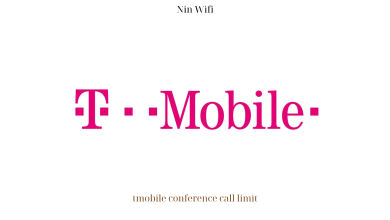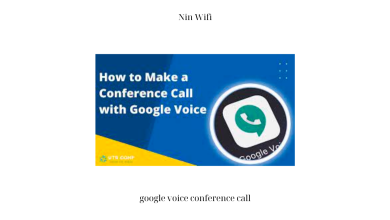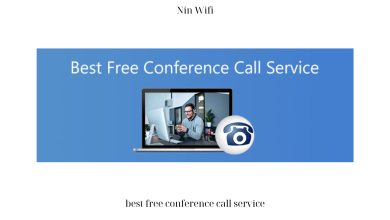What Happens at a Settlement Conference
If you’re involved in a legal dispute, you may have heard of a settlement conference. Settlement conferences are a common way to resolve legal disputes without going to trial. During a settlement conference, both parties meet with a neutral third-party mediator to try and reach a settlement agreement.
Introduction
A settlement conference can be a valuable tool for resolving legal disputes. In this article, we’ll take a closer look at what happens at a settlement conference and why they are important.
Preparing for a Settlement Conference
Before attending a settlement conference, there are several things you should do to prepare. The first is to gather all necessary documents and evidence. This may include contracts, emails, and other correspondence related to the dispute.
Next, you’ll need to meet with your attorney and the mediator to discuss the settlement process. The mediator will explain the process and answer any questions you may have. Your attorney will also help you prepare your arguments and evidence.
Finally, it’s important to understand the settlement process. Settlement conferences are designed to be less formal and less adversarial than a trial. The focus is on finding a mutually agreeable solution to the dispute. While the mediator will not make a decision, they will help guide the discussion and facilitate negotiations between the parties.
Once you arrive at the settlement conference, the mediator will explain the process and go over any ground rules. Each party will then have the opportunity to make an opening statement, outlining their position and the evidence they have to support it.
Presentation of Evidence and Arguments
After the opening statements, each party will have the opportunity to present their evidence and arguments. The mediator may ask questions and help clarify any points of contention. The goal is to bring both parties to a mutual understanding of the issues in dispute.
Negotiation and Discussion of Settlement Terms
After the evidence and arguments have been presented, the parties will begin negotiating and discussing settlement terms. The mediator will help facilitate this process, encouraging both parties to consider different options and find a solution that works for everyone.
Finalizing and Signing the Settlement Agreement
Once both parties have agreed on the terms of the settlement, a written agreement will be drafted and signed by both parties. This agreement is binding and legally enforceable.
Settlement conferences can be a valuable way to resolve legal disputes without going to trial. They are less formal and less adversarial than a trial, and they offer both parties more control over the outcome of the case. In the next section, we’ll take a closer look at the advantages of settlement conferences.
The Settlement Conference Process
During a settlement conference, the mediator will guide the parties through a structured process designed to resolve the dispute. This process typically consists of four main stages:
Opening Statements by Both Parties
Each party will have the opportunity to make an opening statement, outlining their position and the evidence they have to support it. This is an opportunity to establish the foundation for the negotiations and to ensure that both parties have a clear understanding of the issues in dispute.
Presentation of Evidence and Arguments
After the opening statements, each party will have the opportunity to present their evidence and arguments. The mediator may ask questions and help clarify any points of contention. The goal is to bring both parties to a mutual understanding of the issues in dispute and to identify areas of agreement and disagreement.
Negotiation and Discussion of Settlement Terms
Once the issues in dispute have been identified, the parties will begin negotiating and discussing settlement terms. The mediator will help facilitate this process, encouraging both parties to consider different options and find a solution that works for everyone. The goal is to reach a mutually agreeable settlement that resolves the dispute.
Finalizing and Signing the Settlement Agreement
Once both parties have agreed on the terms of the settlement, a written agreement will be drafted and signed by both parties. This agreement is binding and legally enforceable. The settlement conference process is now complete, and the dispute has been resolved.
Advantages of Settlement Conferences
Settlement conferences offer several advantages over going to trial:
Cost-Effectiveness Compared to Going to Trial
Settlement conferences can be a cost-effective way to resolve legal disputes. Going to trial can be expensive, with high legal fees, court costs, and other expenses. Settlement conferences are generally less expensive than going to trial, making them a more cost-effective option for resolving disputes.
Confidentiality of Settlement Negotiations
Settlement conferences are confidential, which means that the negotiations and discussions that take place during the conference cannot be used against either party in court. This can provide a more relaxed environment for negotiations and can encourage both parties to be more open and honest in their discussions.
Control Over the Outcome of the Case
Settlement conferences offer both parties more control over the outcome of the case. In a trial, the judge or jury makes the final decision, which may not be in either party’s best interest. In a settlement conference, the parties work together to find a mutually agreeable solution, which can result in a better outcome for both parties.
In conclusion, settlement conferences offer a valuable way to resolve legal disputes without going to trial. They are less formal and less adversarial than a trial, and they offer both parties more control over the outcome of the case. Settlement conferences are a cost-effective, confidential, and efficient way to resolve legal disputes.
Possible Outcomes of a Settlement Conference
There are three possible outcomes of a settlement conference: a successful settlement agreement, a partial settlement agreement, or no settlement agreement reached.
Successful Settlement Agreement
If both parties are able to come to an agreement, a settlement agreement will be drafted and signed by both parties. This agreement is legally binding and will outline the terms of the settlement.
Partial Settlement Agreement
In some cases, the parties may be able to reach a partial settlement agreement. This means that they were able to agree on some terms, but not all. The remaining issues will be resolved through other means, such as going to trial.
No Settlement Agreement Reached
If the parties are unable to come to an agreement, the case will proceed to trial. However, even if a settlement agreement is not reached, the settlement conference can still be beneficial. The parties may have a better understanding of each other’s positions and the issues in dispute, which can help streamline the trial process.
Conclusion
In conclusion, settlement conferences are an important tool for resolving legal disputes. They offer both parties a chance to work together to find a mutually agreeable solution. By preparing for the conference, presenting evidence and arguments, negotiating and discussing settlement terms, and finalizing and signing the settlement agreement, both parties can avoid the time, expense, and uncertainty of going to trial.
Settlement conferences are an important consideration for anyone involved in a legal dispute. By working with a skilled mediator and preparing adequately, parties can increase their chances of reaching a successful settlement. At Ninwifi.com, we understand the importance of staying informed about legal procedures and processes, and that’s why we bring you informative articles like this one.



